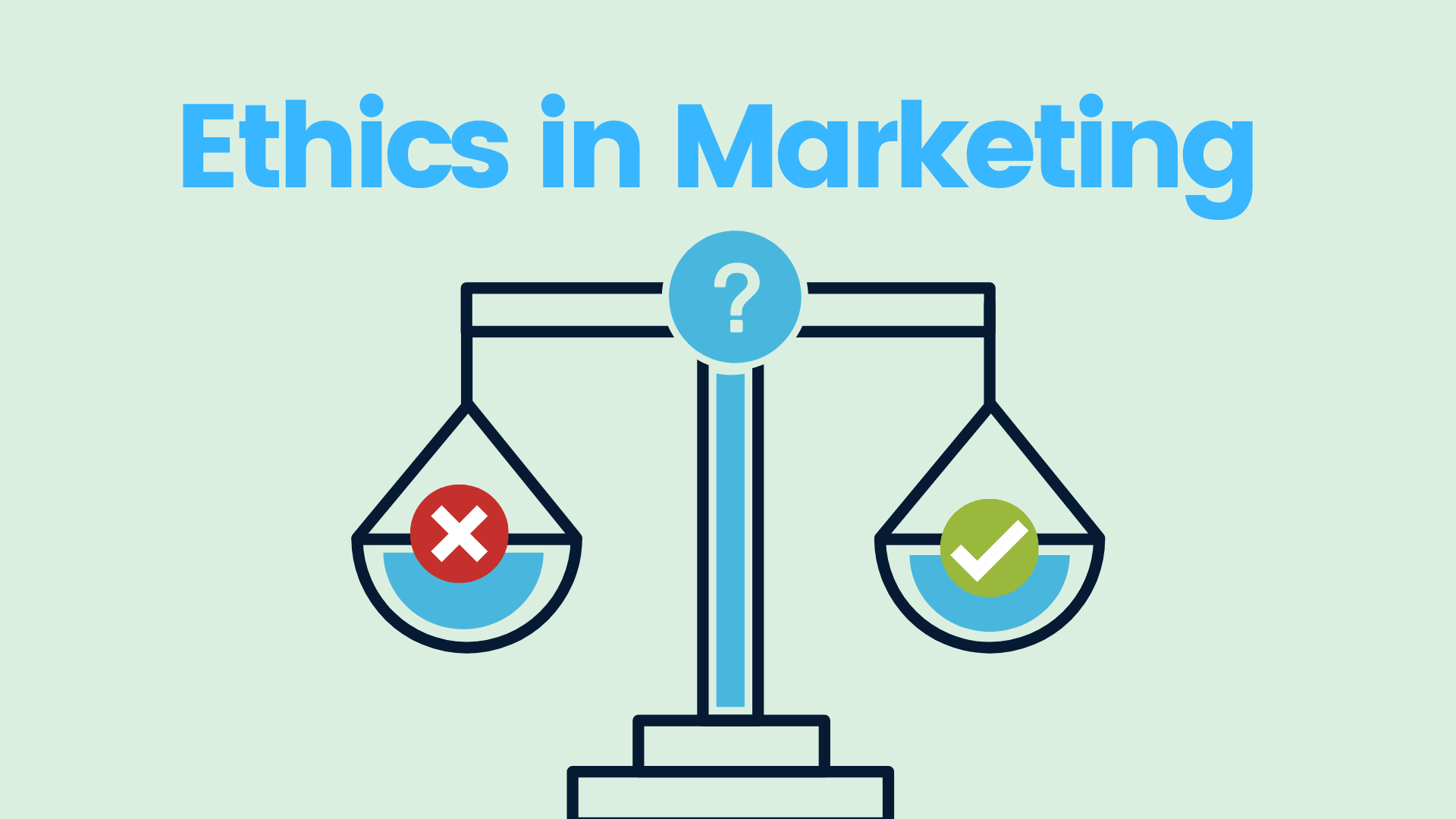
Marketing ethics refer to a set of moral principles that guide the behaviour of individuals and businesses involved in advertising and selling goods and services.
Since it is important for most companies, studies on business ethics generally include marketing ethics. It involves making moral decisions at every stage of the marketing process, from product creation to advertising and sales.
Companies that adhere to marketing ethics often aim to respect their consumers’ rights, wants, and expectations.
While business leaders seek to generate profit and operational income, they may also prioritise principles such as honesty, ethics, and fairness over making money.
There are two main types of ethics that marketers research and use:
Positive marketing ethics: When you adhere to positive marketing ethics, you conduct actions that benefit people, society, and the environment.
This approach goes beyond merely complying with the law and aims to make a positive impact on many lives. Such moral actions promote honesty, fairness, social responsibility, and empathy.
They consider how products will benefit individuals, as well as how they will fulfil social responsibilities and address various moral issues.
- ‘Disunity not helping African tourism’
- Positive living: Importance of HIV viral load testing
- Positive living: Importance of HIV viral load testing
- Building Narratives: Florence Mudzingwa in historic book launch
Keep Reading
Normative marketing ethics: Normative marketing ethics involves examining and applying moral principles and rules that guide what should be done in marketing.
It involves setting moral standards and emphasising the best behaviours and practices that marketers and businesses should adopt.
Normative ethics provides businesses with a framework to make ethical marketing decisions that align with widely accepted moral norms.
There are numerous issues that arise when entrepreneurs attempt to uphold the highest ethical standards in marketing, which the entire ecosystem has to grapple with as noted below.
False advertising: This occurs when the benefits of a product or service are overstated in marketing and advertising messages. False advertising can cause people to trust a brand less and damage its reputation in the long term.
Selective marketing: Customer segmentation can be flawed if it results in selective marketing, which involves excluding certain types of clients. This could reduce the likelihood of “undesirable” customers making purchases, especially if they are perceived as damaging to the brand’s reputation or not profitable.
Greenwashing: This happens when marketers make their brands and the products they design, produce, distribute, and promote seem more environmentally friendly, sustainable, or ethical than they actually are. This is a harmful misrepresentation which, in the long run, can cause pan-African brands to lose a significant amount of money through fines and damage to their reputation.
Making fun of celebrities on social media: Some marketers have begun to use the tactic of posting critical comments on social media to mock celebrities’ mistakes in order to attract more attention. This has the potential to backfire, as there is a high likelihood that the narrative will degenerate beyond fair practices.
Unethical data usage: Improper use of customer data can lead to privacy breaches and a loss of trust.
Reinforcing prejudices: Sometimes, marketing campaigns unintentionally foster damaging biases.
Further, there are significant ethical considerations in the marketing domain that should be understood within the context of consumer buyer behaviour as highlighted below:
Understanding consumer psychology: To develop ethical marketing strategies, you must understand how customers think and feel. Consumer psychology explores how the environment influences people’s thoughts, emotions, and behaviour.
Ethical consumerism: In some ways, all buying behaviour is moral because it involves making moral choices. People who are concerned about human rights violations in another country may think about this when deciding what to buy. For example, they might consider how much business is conducted in that country.
Open and honest: Acquiring customers by being transparent and providing them with accurate, honest information is a crucial aspect of ethical marketing.
Consumer preference for ethical products: People care about doing the right thing and always act accordingly. Framing things in ways that appeal to a person’s sense of morality can be a powerful technique to persuade them to make a purchase.
Understanding what matters to your customer: Companies must identify which ethical concerns are significant to their customers and ensure they are satisfied with how the company addresses those issues.
In conclusion, a crucial strategy for a company to establish customer trust over time is to adhere to marketing ethics.
By being honest, transparent, and respectful in their business practices, companies can foster closer relationships with their customers and cultivate a strong brand reputation.
Ethical marketing reduces the likelihood of legal issues and enhances competitiveness.
Brands that communicate their values to customers are providing content that is highly strategic for their success.
Until then, think, eat, sleep, and dream about branding!
*Dr Farai Chigora is a businessman and academic. He is the head of business science at Africa University’s College of Business, Peace, Leadership, and Governance. His doctoral research focused on Business Administration (Destination Marketing and Branding Major, UKZN, SA). He can be contacted for feedback at [email protected] or via WhatsApp mobile: +263772886871.
*Dr Tabani Moyo is an extra-ordinary researcher with the University of North West, South Africa’s Social Transformation School. He holds a Doctorate in Business Administration (Research focus on new media and corporate reputation management, UKZN), chartered marketer, fellow CIM, communications and reputation management expert based in Harare. He can be contacted at [email protected] @TabaniMoyo (X)











